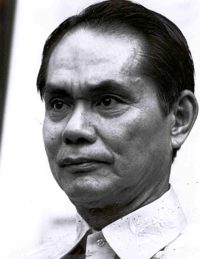Gary Teves was depressed. “This is a rightist Constitution that the Steering Council has produced,” he complained.
Ben Campomanes commented that only one provision—that of central monetary authority—was included from his committee report. But even that, Gary said, was meaningless because the other important provisions on the economy were not there. Besides, what was important on the central monetary authority was the constitutional officers.
Their fears have a basis. There is a decisive relationship between economic development and democracy. Daunting economic problems, highlighted by mediocre economic growth, have brought down some elitist and facade democracies in Latin America, which had reeled from the weight of tremendous inequalities in wealth and political power.
“There is no improvement over the 1935 Constitution. We are trying to change the system,” Gary lamented, “and the only thing that the Steering Council has contributed is the transitory provision, which is very, very rightist.”
A climate of frustration and resignation is spreading among the delegates over what the Steering Council has been doing. It seems that all hopes have been given up of forging a Constitution that shall really be reformist in character.
Erning Amatong sadly said that the tragedy was that each time we gave in a little, the majority would grab more and more.
I felt sorry, too. Erning is one of the straight guys who was wavering on how he would vote in the transitory provision. He had voted “Yes” on the understanding that we might all hide when the time for the signing of the Constitution comes.
“We are just saving ourselves from being arrested now,” I had assured him. “And we shall never take the oath (of office as members of the Marcos-controlled Assembly).”
